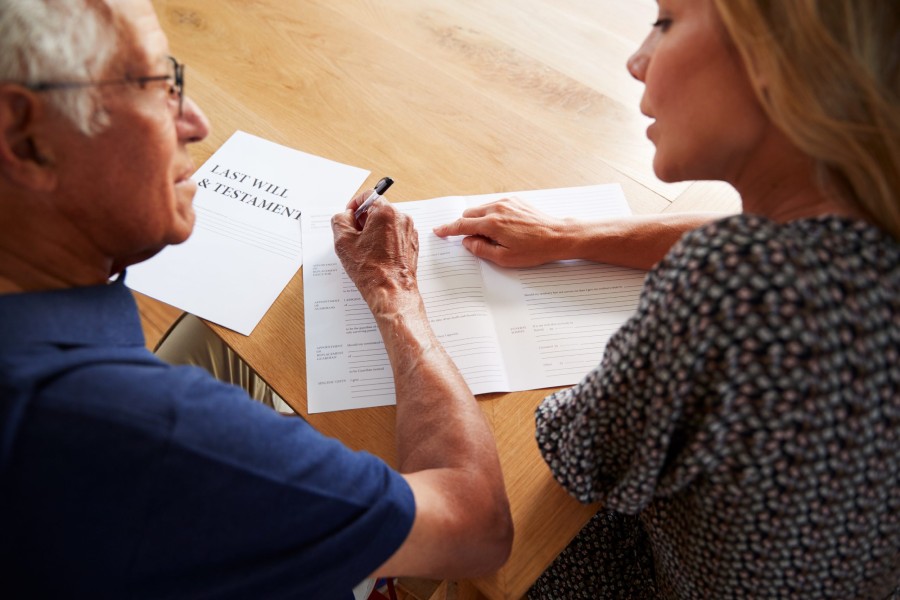Neighbour wrote herself into dying man’s Will
Fraudulent Wills - don't be caught out
A man allowed his neighbour to fill in the blanks of his already signed and witnessed Will because she had better handwriting than him, a court has been told.
According to Dr Paul Davis, a retired doctor with terminal cancer, he wanted all his possessions to go to his cousins in Australia and close friends in the village.
However, it is alleged that Claire Symons took the document away from his house to hers and treated it like a 'blank cheque' after adding herself as 'pretty much the sole beneficiary of the Will'.
When Dr Davis finally saw the finished Will, he was so shocked he called the police and Ms Symons was charged with fraud, which she denies. She has appeared at Exeter Crown Court and the case continues.
Should you ever sign your Will and get it witnessed before it's finished?
No, absolutely not. Once signed and witnessed, known as attestation, your Will is legally binding.
Dr Davis - whose hands were 'terribly shaky' and wanted his wishes to be legible - asked two close friends to witness his Will. They were very reluctant because he hadn't set out the provisions at the time but proceeded because they knew he was unwell.
Symons then made notes from what Dr Davis told her and took the Will home to complete it.
Is it safe to change a Will?
Asking someone else to add details later is extremely risky and in fact, you should never change an attested Will, including adding new wording or notes, deleting, crossing out or editing in anyway.
In most cases, it's safer and easier to draw up a new Will making sure your latest version includes a paragraph revoking your old Will.
How do you avoid your Will being contested after you die?
Had Mr Davis died without the alleged fraud to his Will being spotted, his estate may not to have gone to the beneficiaries he wanted. It could also have ended up being contested by those who felt they had missed out as a result.
A forged or fraudulent Will, a forged signature and other frauds may be grounds for claiming the Will is invalid. Unfortunately, it is usually very difficult to prove fraud and often very expensive too.
The safest and surest way to avoid difficulties for your friends and loved ones is to make a correctly drawn Will ensuring you sign it in the presence of two witnesses, who then sign the Will. Failing to carry this out renders the Will invalid.
In this a case an earlier valid Will then falls into place, or if there is no earlier valid Will, intestacy rules govern how your estate is distributed. This is likely be very different from what you intended.
This is also the case if it can be shown that the testator did not actually know and approve the contents of the Will that was signed.
- For help and advice about safely making or updating your Will contact our Wills, Probate and mental Capacity Team.
Get in touch
If someone close to you has recently died and you think forgery may have been involved, the help of a specialist lawyer is vital as every case needs to be looked at on an individual basis, especially as the number of people disputing a loved one's Will is rising fast.
If you want to contest or defend a Will, please contact Wards Solicitors' Contentious Trusts and Probate Team.
Our lawyers are members of the Association of Contentious Trusts and Probate Specialists (ACTAPS), the Society of Trust and Estate Practitioners (STEP), Solicitors for the Elderly (SFE) and the Law Society's Probate Panel. All demand a high level of expertise and up to date knowledge from their members.
Wards Solicitors' team is praised by the Legal 500 Guide for 2022 for its broad contentious trusts and probate practice with a particular emphasis on Inheritance Act and Court of Protection matters.
Head of the team, Elizabeth Fry, is highlighted as a key lawyer specialising in high value and multi-jurisdictional matters.


